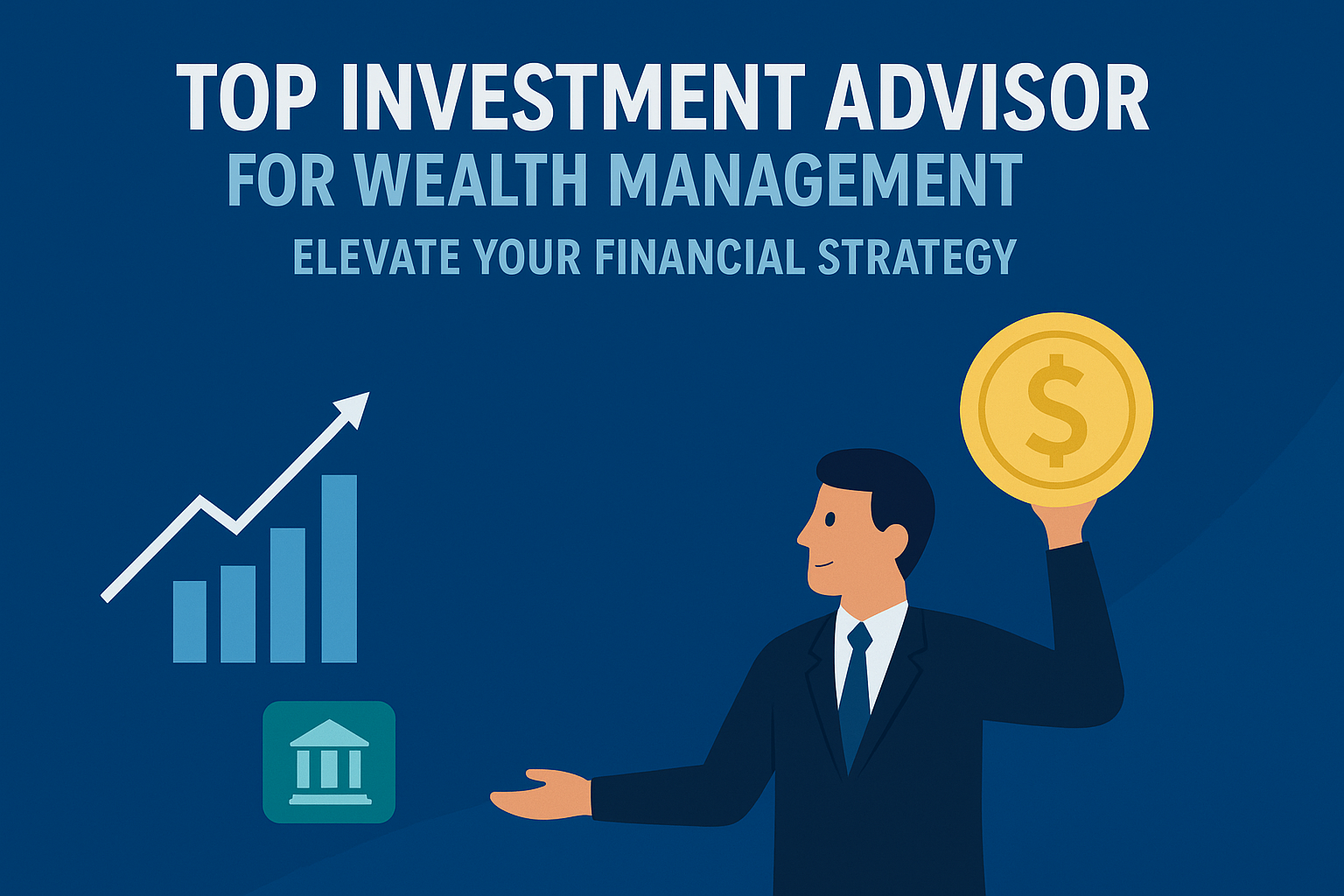Introduction As your income grows, so should your financial strategy. Simple savings accounts and ad-hoc investments are not enough when you begin accumulating significant wealth. That’s where a top investment advisor for wealth management becomes critical. This article explains what wealth management entails, why expert advisory matters, and how to choose the right partner to preserve and grow your wealth over the long term.
What is Wealth Management? Wealth management is a comprehensive financial service that goes beyond investment advice. It includes a broad range of services such as:
- Investment portfolio planning
- Tax strategy
- Retirement and estate planning
- Risk management
- Succession planning
- Philanthropic guidance
Wealth management is typically tailored to affluent individuals or families with complex financial needs and goals.
Why a Top Investment Advisor is Essential for Wealth Management
- Strategic Asset Allocation
- Top advisors diversify your portfolio across equities, debt, real estate, and international investments based on your risk profile.
- Proactive Portfolio Management
- Regular rebalancing of your investments to adjust to market conditions and personal financial milestones.
- Risk Mitigation
- Use of financial instruments like bonds, hedging, and insurance to protect your assets.
- Tax Optimization
- Advisors structure your investments to take advantage of tax laws and deductions.
- Goal-Driven Investment Planning
- Advisors align investments with specific life goals—child’s education, retirement, business expansion, or real estate acquisitions.
Core Services of a Wealth Management Advisor
- Financial Planning: A detailed blueprint of your finances covering assets, liabilities, income, expenses, and goals.
- Investment Advisory: Fund selection (equity, debt, hybrid, REITs, gold), performance analysis, and market timing.
- Estate Planning: Wills, trusts, and succession plans for seamless wealth transfer.
- Business Succession Planning: Strategy to transition ownership while maintaining operational continuity.
- Philanthropy Advisory: Structuring donations and charitable foundations for high-net-worth individuals.
Case Study: Smart Growth Through Holistic Planning
Vikram, a 38-year-old tech entrepreneur, hired a wealth advisor after his startup was acquired. The advisor helped diversify his lump sum through global funds, Indian blue-chip stocks, and REITs. Within three years, his wealth grew by 28% CAGR, while his tax liability reduced by 35% due to optimized asset location strategies.
How to Identify a Top Wealth Management Advisor
- Professional Credentials: Look for CFP (Certified Financial Planner), CFA (Chartered Financial Analyst), or SEBI RIA registration.
- Fee Structure: Prefer fee-based or fee-only advisors over commission-based ones to avoid biased advice.
- Experience: At least 5–10 years of handling diverse portfolios.
- Tech Integration: Use of client dashboards, mobile apps, and real-time analytics.
- Client Testimonials & Referrals: Positive reviews and long-term client relationships.
Technology + Personal Expertise = Modern Wealth Management
Top advisors today combine personal consultation with digital tools such as:
- Portfolio tracking apps
- AI-driven asset allocation tools
- Tax calculators
- Real-time alerts and market news
Benefits of Hiring a Wealth Management Expert vs. General Financial Planner
| Feature | General Planner | Top Wealth Advisor |
|---|---|---|
| Investment Depth | Moderate | Advanced multi-asset planning |
| Tax Strategy | Basic | In-depth & global tax advisory |
| Risk Management | Limited | Comprehensive |
| Estate Planning | Rare | Core service |
| Personalized Strategy | Moderate | Highly tailored |
Common Wealth Management Mistakes to Avoid
- Overexposure to a single asset class (e.g., equity only)
- Neglecting succession and inheritance planning
- Focusing solely on returns, ignoring risk
- Poor documentation and lack of audits
- Infrequent portfolio reviews
Frequently Asked Questions
Q1: What is the minimum wealth needed to hire a wealth advisor? A: Typically ₹50 lakhs and above, but many advisors now offer services to mass affluent clients.
Q2: How often should I meet my wealth advisor? A: At least quarterly for reviews, or more frequently if life goals or market changes demand it.
Q3: What’s the difference between a wealth advisor and a stockbroker? A: A stockbroker executes trades; a wealth advisor creates a long-term strategy, covering many aspects beyond stock investments.
Q4: Can wealth managers help with international investments? A: Yes. Top advisors offer access to global funds, ETFs, and tax-compliant overseas investment options.
A top investment advisor for wealth management is your financial architect—building, protecting, and optimizing your wealth through expert planning. From investment advice to legacy planning, they are equipped to handle the nuances of complex financial lives. If you’re serious about growing and safeguarding your wealth, it’s time to consult with a top-tier advisor who can tailor solutions to your vision and values.


Leave a Reply